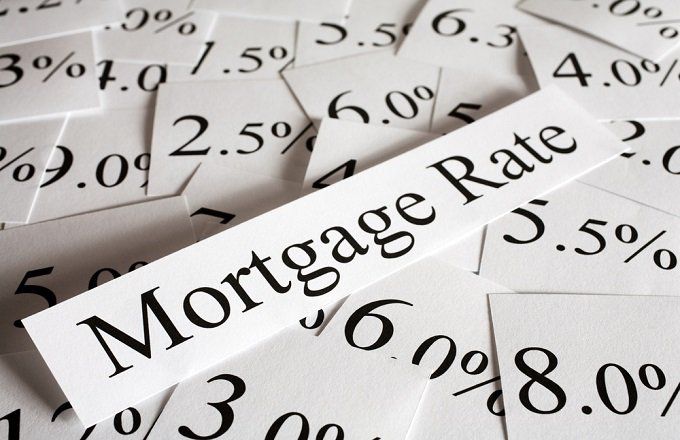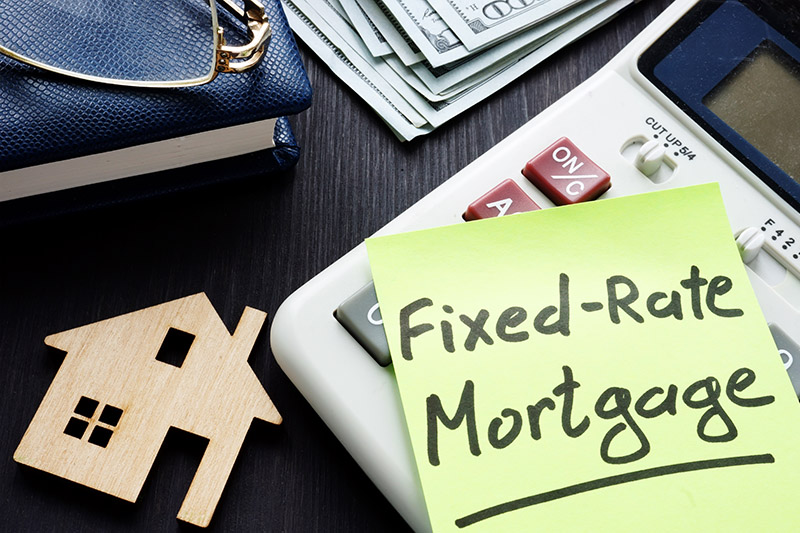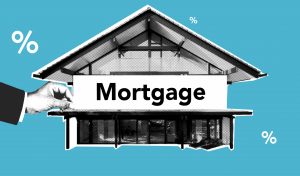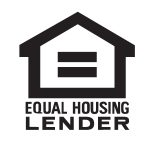When buying a home for the first time, you’ll come across many loan options. So, what do you think fixed-rate mortgage means? Well, it means you can pay monthly installments at a fixed rate for 15 or 30 years.
ARM (adjustable-rate mortgage) is another option that you can choose when finding homes. But there are some basics such as different types of mortgages, and how do they work?
Only then you can confidently decide whether or not the fixed-rate mortgage is right for you. Let’s start with the basics!
What Is A Fixed-Rate Mortgage?
In a fixed-rate mortgage, the interest rate remains the same for the entire loan period. Whether it’s for 15 years or 30 years. The monthly payments and mortgage interest can be negotiated at the time of closing. But once the loan is sanctioned for a specific time period; you won’t be able to change the interest.
It means market prices whether up or down will not influence your mortgage interest. That’s why most people in the US prefer to pick fixed-rate mortgages. It’s a low-risk and affordable kind of loan that suits almost every budget. Also, it requires a low credit score as compared to other mortgage options.
How much home can I Afford?
Wanna check how much home you can afford? You need to consider the additional costs that come up with becoming a homeowner. It includes:
- Property taxes
- homeowners insurance
- HOA fees
- Maintenance and repair charges
The simple way around is to call our USM lending officer at (800) 562-6715 Or use our mortgage calculator.
Use Fixed-rate Mortgage Calculator
How Fixed-rate mortgage works?

The mortgage interest remains the same throughout the loan process. So, you don’t have to worry about the changing market rates. The most common mortgage terms are for 15 years and 30 years. Whenever you are choosing a mortgage plan always ask yourself:
- The lower monthly payments that you can afford?
- In how much time you can pay off your loan faster?
- The Total Interest amount do you need to pay throughout the loan period?
- For how long you are planning to stay on the property?
15 years Fixed: This fixed-term plan has more benefits than other plans. This plan offers low mortgage interest than other plans.
30 Years Fixed: The most affordable loan option with low monthly payments. The only drawback is the high-interest rate.
Customized: You can also choose the customized mortgage plan from 8 to 30 years. The terms & conditions can vary depending on the mortgage lender.
We suggest 15 years fixed mortgage period is a good option if you are looking to pay off a loan faster. Rest it depends on your budget and the lender’s T&Cs.
What is the difference between Fixed-rate Mortgage and Adjustable Rate Mortgages (ARMs)?
The first and basic difference is the interest remains the same in fixed-rate mortgages irrespective of market value. Whereas It keeps on varying in ARMs influenced by the highs and lows in the market.
The second difference is the mortgage interest is lower in ARMS during the initial few years.
But. ARMs can be a bit riskier once the introductory period is over. You may end up paying high monthly installments depending on the ups and downs in the real estate market.
ARMs are the best option to choose when you are not planning to stay in the house for longer periods. The mortgage rate remains fixed for the first 5 to 7 years and keeps on varying after the initial phase gets over.
Also Read: Essential Things You Must Know Before Buying Rental Property!
Different types of Fixed-rate Mortgages:
Conventional: The qualifying process is a bit tougher than other types of loans. Such loans can be approved by banks and private lenders. The minimum credit score requirement is 620 & 43% DTI (Debt to Income) ratio.
FHA/VA/ USDA: All these fixed-rate mortgages are government-approved. FHA loans can be availed by US Citizens whereas VA loans are meant only for veterans and military servicemen. USDA loans are to facilitate rural borrowers.
Conforming: It is conformed by FHFA( federal house finance agency) and comes with a certain loan limit. The borrower must meet the standards set by FHFA.
Non -Conforming: Such loans also include Jumbo loans and don’t require to meet
FHFA( federal house finance agency) standards. The interest and credit score requirement is comparatively higher.
Amortizing: Most the Fixed-rate Mortgages are amortizing loans. It means your monthly installment is subject to both principal and interest rate charges.
Non-amortizing: They are not widely available but offer great benefits in the initial phase such as low monthly payments including the interest rate. But things can turn around after his introductory period gets over.
Pros and Cons of Fixed-Rate Mortgage
| Pros | Cons |
|
|
Why should I choose the Fixed Rate Mortgage?
A fixed-rate mortgage makes sense when you are looking to buy a permanent residence. The best part is it offers stability and certainty.
Once the deal is closed, the interest is going to be the same for the whole loan span. So, you don’t have to bother about the changing real estate price.
Another aspect of choosing a Fixed-rate mortgage is the low credit score and low down payment requirements. This mortgage option suits almost all pockets.
Final Words on Fixed-Rate Mortgage:
What’s best about Fixed-rate mortgages is low risk and low monthly installments. We have already discussed the various types and Pros and Cons of a fixed-rate mortgage. It’s also important to understand the credit score and DTI ratio to become a qualified borrower. No matter what type of loan you choose, always keep in mind your current financial status and debts as well.
Planning to apply for a Fixed-rate mortgage? Get started with US Mortgage today!





